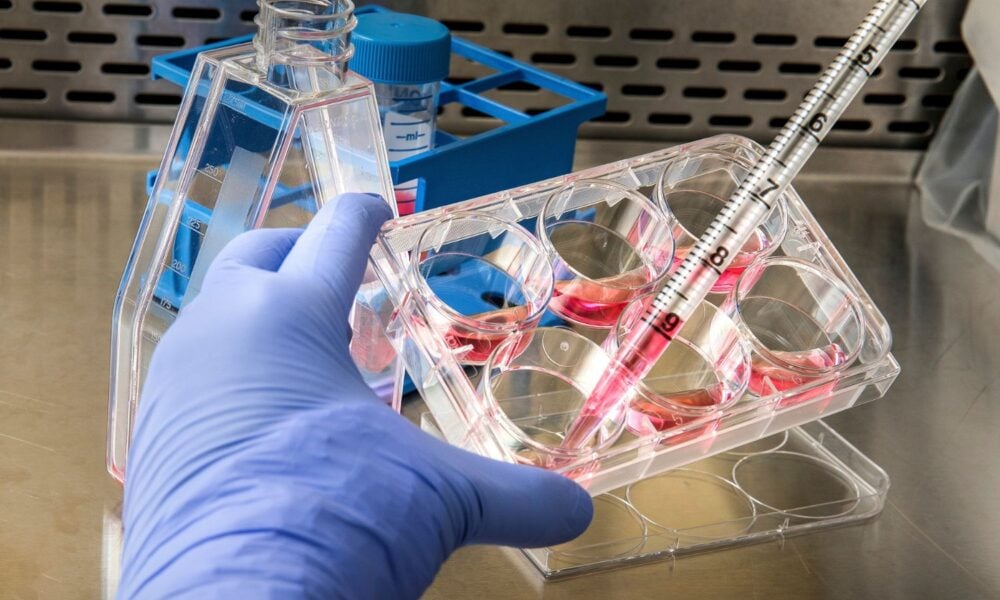In early May, Massachusetts General Hospital confirmed that it was treating a patient with monkeypox – the first case of the rare virus in the United States in 2022. As of August 1, there are now 5,811 confirmed cases of the virus in the United States, and more than 23,000 cases have been reported across 76 countries. A study published in The New England Journal of Medicine in late July of this year found that 98 percent of those infected between April and June 2022 across 16 countries identified as men who have sex with men.
The monkeypox virus spreads through skin-to-skin contact, bodily fluids, and through respiratory droplets. It can infect anybody, regardless of sexual orientation or activity. And while the virus is primarily affecting gay and bisexual men at the moment, there is significant potential for it to spread to other groups over the coming months.
The situation is dire – the World Health Organization declared a global health emergency on July 23 and several US states, including California, Illinois, and New York have declared states of emergency. Many public health experts do not believe that the virus can be contained at this point and expect cases to continue to rise, although there is uncertainty to what extent.
On August 2, the White House announced that it had formed a team to lead a nationwide response to monkeypox. President Biden named Robert Fenton, Region 9 administrator of the Federal Emergency Management Agency (FEMA), and Demetre Daskalakis, director of the Centers for Disease Control and Prevention’s Division of HIV Prevention, as the team’s coordinators. According to the announcement from the White House, Fenton and Daskalakis “will work with local, state, national, and international stakeholders on tracking and fighting the spread of monkeypox, with state and local partners to ensure they have adequate supplies to test, treat and vaccinate at-risk individuals, with clinicians and providers on available testing, treatment and vaccination options, and with stakeholder communities on building public understanding of the virus and how to address it most effectively.”
The administration’s response team will certainly have their work cut out for them. The team will need to ensure its strategies are informed by the best available science free from undue political interference, and that the implementation of its strategies is equitable. Here’s some information about what has happened so far, including the social dynamics this team will need to consider moving forward.
Monkeypox Vaccine Fumbles
The Biden administration’s response to the monkeypox virus hasn’t been well-received by experts or by the Lesbian, Gay, Bisexual, Queer, and Transgender (LGBQT) community. When cases began rising, the administration was criticized by LGBQT activists for not moving fast enough to secure the effective Jynneos monkeypox vaccine to slow, and potentially halt, the spread of the virus in the United States.
The New York Times reported in July that the US government took a “wait-and-see” approach. For weeks while it was known that monkeypox was spreading, the administration let some 300,000 US-owned doses of ready-to-use Jynneos vaccine sit still in cold storage in Denmark, where the producer of the vaccine, Bavarian Nordic, is located.
The US government only requested 72,000 of these ready-to-use vaccines in the first weeks after the virus was detected. Federal officials said they were reluctant to request all available doses because US cold storage wasn’t as cold as that in Denmark and it would have decreased the shelf life of the vaccines if they weren’t all distributed. Aside from vaccines ready to be used, the US government also owns more than a million doses of the vaccine, but access to the supply was tied up by bureaucratic red tape as the Food and Drug Administration (FDA) had to inspect and certify a new facility outside of Copenhagen that places the vaccine into vials.
Current supplies are expected to only cover about one-third of the estimated 1.6 million gay and bisexual men in the United States. Many states have opted to give only one dose of the two-dose Jynneos vaccine due to shortages. I have experienced being notified of this myself – DC health notified me that my second Jynneos vaccine appointment was postponed due to shortages of the vaccine.
Further supplies of the Jynneos vaccine are not expected to arrive until October. Some public health experts are concerned that, if cases continue to rise at their current rate, the virus will become permanently entrenched in the country.
Obstacles of Stigma, Misinformation, and Racism
The administration’s monkeypox response team will not only have to work past the prior fumbles in acquiring the vaccine, but also will face obstacles in deploying it. One of those obstacles will be in how the team navigates its messaging to avoid stigmatizing the LGBQT community.
Already, homophobic politicians, right-wing pundits, and other public figures are targeting and blaming the LGBQT community for the spread of monkeypox, leading to stigmatization and discrimination of gay and bisexual men in particular, which is reminiscent of public health mistakes made during the HIV/AIDS crisis. For example, the Daily Mail recently published an article about two cases of monkeypox confirmed in children, but the headline seemingly places the blame on gay and bisexual men; it has been widely criticized on social media. In a comment on the monkeypox outbreak, a University of Texas at Dallas lecturer, Timothy P. Farage, tweeted “Can we at least try to find a cure for homosexuality, especially among men?” Homophobic comments on articles have been liked thousands of times on social media platforms and have been allowed to remain online. The stigma generated by this hate has very real repercussions on the health of everyone. Infected people who may not want to be open about their sex lives are less likely to seek treatment or vaccinate themselves, which inevitably makes controlling the monkeypox outbreak more difficult.
The response team will also need to ensure that access to monkeypox treatments and vaccines are distributed equitably. The Washington Post reported in late July that most reported US patients infected with monkeypox are people of color. Yet, Black people only accounted for 17 percent of patients to receive the antiviral treatment know as TPoxx. New York City’s approach in June for distributing vaccines was criticized for favoring privileged individuals who were able to take off from work and wait in long lines at a clinic in Chelsea, an upscale, historically gay neighborhood. Some Black men even began what they called the “Black queer underground railroad of assistance,” to acquire the vaccine. The response team will need to combat these inequities to ensure their strategies target and support those from underserved communities in an equitable manner.
Science Must be at the Center of Response
The administration’s response team has many challenges moving forward. Its response should be informed by the best available social and natural science to ensure that it combats monkeypox equitably and with the best available knowledge. There are many lessons to be learned from the government’s response to COVID-19, especially that the administration should not politicize its strategies to combat this virus, and that they will need to act now to combat disinformation and misinformation that is already being spread. Science will need to be at the center of every strategy deployed by this response team: testing, tracking cases, keeping up-to-date on monkeypox research, effective messaging, vaccine distribution, and more.
If you need further information about the monkeypox virus, please visit the CDC’s webpage that provides the best available information on signs and symptoms, how the virus spreads, updates on the 2022 outbreak, and information about available vaccines: Monkeypox | Poxvirus | CDC.

